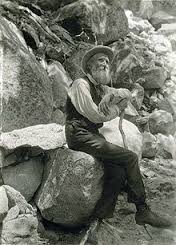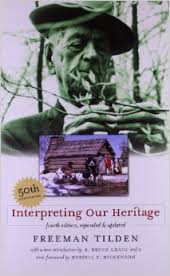What follows is a slightly expanded version of a message I sent to PUBYAC, a listserve discussion group for Public Library services for Young Adults and Children. Many libraries (schools too of course) are looking for ways to tie their programs into the educational initiative known as STEM (an acronym for Science, Technology, Engineering and Math) STEM has been extended by others to STEAM with a well placed acknowledgement of the Arts! PUBYAC librarians have been discussing how to provide relevant programming and particularly to the youngest of their patrons.
Reading the compilation of STEM related activities prompts the following musings…
 The great environmentalist John Muir famously said, “When we try to pick out anything by itself, we find it hitched to everything else in the Universe.” Everything is indeed connected and knowing this offers a reassuring compass when thinking about how to develop programs tied to STEM, STEAM and other science related themes.
The great environmentalist John Muir famously said, “When we try to pick out anything by itself, we find it hitched to everything else in the Universe.” Everything is indeed connected and knowing this offers a reassuring compass when thinking about how to develop programs tied to STEM, STEAM and other science related themes.
I’d like to invoke another wise elder of the environmental tribe… Freeman Tilden, whose Principles of Interpretation have guided Park Rangers, Nature Center staff, Living History, and Museum folks, etc. for generations now. What Tilden passionately promoted was engagement with an audience. It’s for this reason I’d like to share 3 of his 6 principles and then make what I hope will be an encouraging comment or two. Quoting Tilden now…
“The chief aim of Interpretation is not instruction, but provocation. “
“Any interpretation that does not somehow relate what is being displayed or described to something within the personality or experience of the visitor will be sterile.”
“Information, as such, is not Interpretation. Interpretation is revelation based upon information. But they are entirely different things. However all interpretation includes information.”
I particularly like Tilden’s idea that provocation trumps instruction, and I think this is particularly true when we try and program STEM/STEAM activities for the youngest of our patrons or audiences. Science in in broadest sense is about curiosity, observation, speculation, developing and testing theories about how the world works. Pre-schoolers are almost all natural geniuses with all of these traits and tasks! And because everything is connected, you can start just about anywhere… anywhere that is that in some way observes principle 2(within the experience of the visitor)and lead a scientific exploration.
YOu don’t have to limit STEM/STEAM to science or non-fiction books. I just went to my shelves and pulled out a copy of Chris Raschka’s Five for a little one. 
It begins, “Noble nose, sniff and smell…you do it well… Contrast, compare… Sample scents of flowers and foods, oceans and woods…” SCIENCE!
Folktales are often full of references to the natural world ….when I tell a story about how hummingbird got it’s colors… there are endless age appropriate opportunities to ‘provoke’ and relate to kids experiences with birds, flight, nests, behavior…Many traditional Native American folktales have very purposefully embedded important information and lessons about plants, animals, the weather and paying attention to their signs. SCIENCE!
Note the direction of light, and the play of light and shadow in the illustrations of many of your favorite picture books and you have an opening to talk about the course of the sun across the sky, the reasons for the seasons… SCIENCE!
Well, I hope there is at least a little provocation and grist for the STEAM mill here! It’s a wide world out there and you can find it “hitched’ to science at just about every turn!



I have been learning more about STEAM through our PreK4SA here in San Antonio. I am so excited to see your thoughts and inspiration written above. Thank for sharing Five For a Little One picture book – I’ve never seen this title (and I was a librarian – ugh). Can’t wait to get my hands on it. I’ll also be pulling out my Joseph Bruchac’s Native American tales – thank you for that great reminder that nature science and math are filled in their wonder tales. Great blog!
Thanks for the encouraging words Sue!